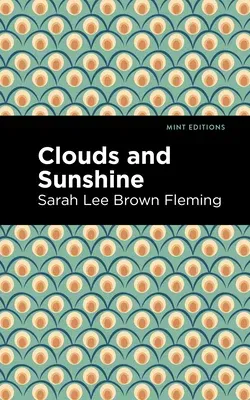Clouds and Sunshine (1920) is a collection of poems by Sarah Lee Brown
Fleming. Published during the Harlem Renaissance, Clouds and Sunshine
is a powerful work of poetry exploring themes of faith, racial identity,
loss, and love in twentieth century America. Recognized as a leading
advocate for the advancement of Black girls and women throughout her
life, Fleming is a writer whose voice never falters from the task at
hand: telling the story of her people. Separated into three sections,
Clouds and Sunshine shows Flemings prowess as a lyric poet of the
Romantic persuasion, a dialect poet in the tradition of Paul Laurence
Dunbar, and a groundbreaking political writer who observed the
experiences of Black Americans while recording and examining her own. In
"Tuskegee," she offers an ode to the iconic institution founded by
Booker T. Washington in Alabama: "On thy consecrated ground / Is carved
a wondrous story, / Out of chaos, Washington / Raised this place to
glory." In "The Black Man's Hope," located in the section titled "Race
Poems," Fleming condemns the politics of the United States, which
promises so much to white Americans while betraying time and again a
people it never meant to recognize as citizens: "I hear the talk of the
white man's hope / In the ring and at the poll, / But never a word of
the black man's hope / Do I hear as time doth roll. // Bowed with the
weight which slavery left / Upon his chattled frame, / No star of hope
comes into view / The weight is still the same." In two brief stanzas,
Fleming effectively condemns the emptiness offered with every election
cycle. Far from despairing, she makes a powerful case for resistance
while telling a terrible truth: prejudice is a manmade thing, and only
targeted action can undo it. With a beautifully designed cover and
professionally typeset manuscript, this edition of Sara Lee Brown
Fleming's Clouds and Sunshine is a classic work of African American
literature reimagined for modern readers.


